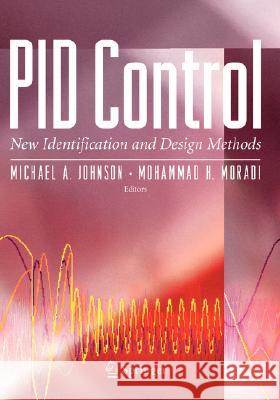Pid Control: New Identification and Design Methods » książka
Pid Control: New Identification and Design Methods
ISBN-13: 9781852337025 / Angielski / Twarda / 2005 / 543 str.
The industrial evidence is that for many control problems, particularly those of the process industries, theProportional, Integral andDerivative(PID) controller is themaincontrol tool beingused. Forthese industrial problems, the PID control module is a building block which provides the regulation and disturbance rejection for single loop, cascade, multi-loop and multi-input multi-output control schemes. Over the decades, PID control technology has undergone many changes and today the controller may be a standard utility routine within the supervisory system software, a dedicated ha- ware process controller unit or an input-output module within a programmable electronic system which can be used for control system construction. With such a well-developed industrial technology available it is not surprising that an academic colleague on learning that we planned a book on PID control exclaimed, "Surely not Is there anything left to be said?." Of course, the short answer is that technology does not stand still: new solution capab- ities are always emerging and PID control will evolve too. Indeed, the Ziegler-Nichols rules have been famous for over sixty years and the Astrom and Hagglund relay experiment has been around for twenty years, so it would be disappointing if some new approaches to PID control had not emerged in the me- time.











